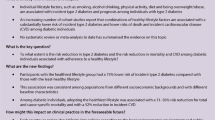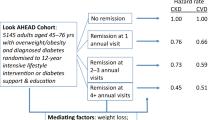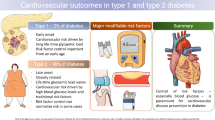Abstract
Background
Weight gain after maturity is a risk factor for diabetes, coronary heart disease, and stroke, even in individuals with a normal body mass index; however, there is little information about the influence of weight gain after maturity on chronic kidney disease (CKD). Therefore, we examined the association between weight gain after 20 years of age and the prevalence of CKD.
Methods
A cross-sectional study was performed on 28,151 women and 21,110 men aged between 40 and 59 years who participated in the specific health check and guidance system of Japan in 2008. We compared prevalence of CKD between participants with and without weight gain of at least 10 kg after 20 years of age. Multivariate logistic regression models and stratified analyses were used to adjust for possible confounding factors.
Results
The prevalence of CKD among participants with weight gain was significantly higher than among those without weight gain both in women (11.8 vs 8.3%, p < 0.0001) and in men (12.2 vs 9.2%, p < 0.0001). After adjustment for age, smoking, regular exercise, alcohol intake, history of kidney disease, hypertension, diabetes, and hypercholesterolemia, the odds ratio (95% confidence interval) for CKD was 1.24 (1.14–1.36) in women and 1.15 (1.05–1.26) in men with weight gain of at least 10 kg after the age of 20 years. Even in participants without metabolic syndrome, weight gain was independently associated with CKD in both genders.
Conclusions
Weight gain after 20 years of age is associated with CKD among Japanese, even those without metabolic syndrome.
Similar content being viewed by others
References
Funatogawa I, Funatogawa T, Nakao M, Karita K, Yano E. Changes in body mass index by birth cohort in Japanese adults: results from the National Nutrition Survey of Japan 1956–2005. Int J Epidemiol. 2009;38:83–92.
Colditz GA, Willett WC, Rotnitzky A, Manson JE. Weight gain as a risk factor for clinical diabetes mellitus in women. Ann Intern Med. 1995;122:481–6.
Chan JM, Rimm EB, Colditz GA, Stampfer MJ, Willett WC. Obesity, fat distribution, and weight gain as risk factors for clinical diabetes in men. Diabetes Care. 1994;17:961–9.
Willett WC, Manson JE, Stampfer MJ, Colditz GA, Rosner B, Speizer FE, et al. Weight, weight change, and coronary heart disease in women. Risk within the ‘normal’ weight range. JAMA. 1995;273:461–5.
Chei CL, Iso H, Yamagishi K, Inoue M, Tsugane S. Body mass index and weight change since 20 years of age and risk of coronary heart disease among Japanese: the Japan Public Health Center-Based Study. Int J Obes (Lond). 2008;32:144–51.
Rexrode KM, Hennekens CH, Willett WC, Colditz GA, Stampfer MJ, Rich-Edwards JW, et al. A prospective study of body mass index, weight change, and risk of stroke in women. JAMA. 1997;277:1539–45.
Ryu S, Chang Y, Woo HY, Kim SG, Kim DI, Kim WS, et al. Changes in body weight predict CKD in healthy men. J Am Soc Nephrol. 2008;19:1798–805.
Ninomiya T, Kiyohara Y, Kubo M, Yonemoto K, Tanizaki Y, Doi Y, et al. Metabolic syndrome and CKD in a general Japanese population: the Hisayama Study. Am J Kidney Dis. 2006;48:383–91.
Tozawa M, Iseki K, Iseki C, Oshiro S, Ikemiya Y, Takishita S. Influence of smoking and obesity on the development of proteinuria. Kidney Int. 2002;62:956–62.
WHO Expert Consultation. Appropriate body mass index for Asian populations and its implications for policy and intervention strategies. Lancet. 2004;363:157–63.
Kohro T, Furui Y, Mitsutake N, Fujii R, Morita H, Oku S, et al. The Japanese national health screening and intervention program aimed at preventing worsening of the metabolic syndrome. Int Heart J. 2008;49:193–203.
Tanaka H, Shiohira Y, Uezu Y, Higa A, Iseki K. Metabolic syndrome and chronic kidney disease in Okinawa, Japan. Kidney Int. 2006;69:369–74.
Yu M, Ryu DR, Kim SJ, Choi KB, Kang DH. Clinical implication of metabolic syndrome on chronic kidney disease depends on gender and menopausal status: results from the Korean National Health and Nutrition Examination Survey. Nephrol Dial Transplant. 2010;25:469–77.
Harrison NA, Rainford DJ, White GA, Cullen SA, Strike PW. Proteinuria: what value is the dipstick? Br J Urol. 1989;63:202–8.
Matsuo S, Imai E, Horio M, Yasuda Y, Tomita K, Nitta K, et al. Revised equations for estimated GFR from serum creatinine in Japan. Am J Kidney Dis. 2009;53:982–92.
National Kidney Foundation. K/DOQI clinical practice guidelines for chronic kidney disease: evaluation, classification, and stratification. Am J Kidney Dis. 2002;39(Suppl 1):S1-266.
Alberti KG, Zimmet PZ. Definition, diagnosis and classification of diabetes mellitus and its complications. Part 1: diagnosis and classification of diabetes mellitus provisional report of a WHO consultation. Diabet Med. 1998;15:539–53.
Committee to Evaluate Diagnostic Standards for Metabolic Syndrome. Definition and the diagnostic standard for metabolic syndrome. Nippon Naika Gakkai Zasshi. 2005;94:794–809 (in Japanese).
Tokashiki K, Tozawa M, Iseki C, Kohagura K, Kinjo K, Takishita S, et al. Decreased body mass index as an independent risk factor for developing chronic kidney disease. Clin Exp Nephrol. 2009;13:55–60.
Wilson EB. Probable inference, the law of succession, and statistical inference. J Am Stat Assoc. 1927;22:209–12.
Kramer H, Luke A, Bidani A, Cao G, Cooper R, McGee D. Obesity and prevalent and incident CKD: the Hypertension Detection and Follow-Up Program. Am J Kidney Dis. 2005;46:587–94.
Fox CS, Larson MG, Leip EP, Culleton B, Wilson PW, Levy D. Predictors of new-onset kidney disease in a community-based population. JAMA. 2004;291:844–50.
Hsu CY, McCulloch CE, Iribarren C, Darbinian J, Go AS. Body mass index and risk for end-stage renal disease. Ann Intern Med. 2006;144:21–8.
Ferris M, Hogan SL, Chin H, Shoham DA, Gipson DS, Gibson K, et al. Obesity, albuminuria, and urinalysis findings in US young adults from the Add Health Wave III study. Clin J Am Soc Nephrol. 2007;2:1207–14.
Amagai Y, Ishikawa S, Gotoh T, Kayaba K, Nakamura Y, Kajii E. Age at menopause and mortality in Japan: the Jichi Medical School Cohort Study. J Epidemiol. 2006;16:161–6.
Acknowledgments
This study was supported by a Health and Labour Sciences Research Grant for “Research on the positioning of chronic kidney disease (CKD) in the Specific Health Check and Guidance System of Japan” (20230601) from the Ministry of Health, Labour and Welfare of Japan.
Conflict of interest
The authors have declared that no conflict of interest exists.
Author information
Authors and Affiliations
Corresponding author
Appendix
Appendix
When the participants with a history of kidney disease were excluded, weight gain was independently associated with CKD in both genders (Tables 7 and 8).
About this article
Cite this article
Wakasugi, M., Narita, I., Iseki, K. et al. Weight gain after 20 years of age is associated with prevalence of chronic kidney disease. Clin Exp Nephrol 16, 259–268 (2012). https://doi.org/10.1007/s10157-011-0565-3
Received:
Accepted:
Published:
Issue Date:
DOI: https://doi.org/10.1007/s10157-011-0565-3




